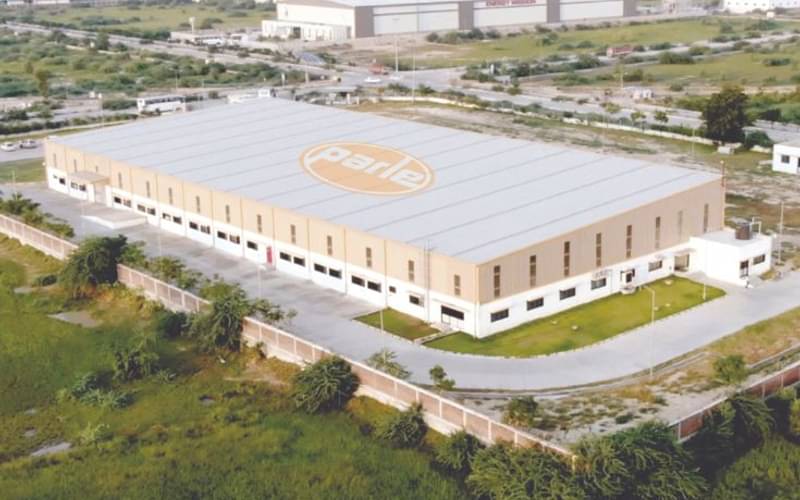"Packaging shall shine, there is a huge potential"
"Manufacturers are harnessing the power of AI and automation to bolster productivity and efficiency," says Mahendra Mehta, CEO of Parle Global Technologies; besides being a member of the board of governors, IPMMI
25 Apr 2024 | By Disha Chakraborty
India's dynamic flexible packaging food and beverage and pharma market is undergoing a significant expansion, embracing innovative and imaginative concepts while maintaining a steadfast commitment to sustainability goals. The Institute of Packaging Machinery Manufacturers of India (IPMMI) is working with the government of India and the trade bodies and promoting all the various schemes and benefits to their members.
IPMMI organises various product-driven seminars and webinars to educate the members. During the exhibitions and meetings, IPMMI shares experience of its members who have done joint ventures or technology transfer which helps the new member to be more careful in commercial and technical commitments in the contract.
By meticulously evaluating these factors, companies can navigate the complex landscape of equipment investments and pave the way for sustainable growth and efficiency.
How our industry can better utilise automation?
In the dynamic landscape of food and beverage and pharmaceutical production, AI and automation are heralding a new era of transformation. Latest approaches are reshaping traditional processes, offering enhanced quality control, minimised downtime, optimised inventory levels, and reduced expenses.
Manufacturers are harnessing the power of AI and automation to bolster productivity and efficiency. Simultaneously, they are prioritising adherence to legal requirements and ensuring patient safety.
By embracing these innovative technologies, pharmaceutical companies are not just keeping pace with change; they're leading the charge towards a future defined by precision, reliability, and excellence.

Parle's factory in Mumbai
Challenges encountered in implementing eco-friendly solutions
In the quest for eco-friendly solutions, businesses encounter several hurdles along the way. Chief among them is the preference for plastic - a material prized by many for its unparalleled attributes. Lightweight, durable, and cost-effective, plastic reigns supreme in the packaging realm, posing a formidable obstacle to the adoption of environmentally friendly alternatives.
This reliance on plastic emerges as a blockade for businesses seeking to transition to sustainable packaging practices.
Unlocking the harmony: Balancing sustainability and innovation
For business leaders, comprehending the interplay between concepts is imperative for navigating the challenges that lie ahead. Innovation drives progress, especially in food and beverage and pharma, sparking the development of ideas and products. However, without a focus on sustainability, these advancements risk being short-lived or detrimental to the environment and society.
Conversely, sustainability provides the framework for innovation to thrive responsibly, ensuring that progress is both beneficial and enduring. By embracing the synergy between innovation and sustainability, business executives can steer their organisations towards a future defined by resilience, responsibility, and long-term success.
Opinions on the government's tough packaging regulations for sustainability
Policies and regulations serve as essential guardians of various things, ensuring the end user’s safety; environmental compliance and reduction of CO2 emissions. These measures verify that producers adhere to environmental regulations, ensuring responsible sourcing, production, and disposal practices.
By enforcing compliance, they mitigate the ecological footprint of packaging operations. Policies and regulations also contribute to the reduction of carbon dioxide emissions by imposing limits and promoting eco-friendly practices throughout the packaging life cycle.

Mahendra Mehta, IPMMI member; and MD and CEO of Parle Global
Small businesses and the GST composition scheme
The GST composition scheme offers a streamlined path for businesses, significantly reducing the burden of compliance. By simplifying processes such as tax returns, record-keeping, and invoicing, small firms stand to gain immensely. With the option for quarterly tax payments, businesses can better manage their cash flow, enhancing liquidity and financial flexibility.
Moreover, lower tax rates under the scheme alleviate the tax burden on businesses, providing them with a competitive edge and room for growth. This combination of reduced compliance requirements and favourable tax rates presents a compelling opportunity for small firms to thrive .
The road ahead for India in 2024
In the landscape of India's economic growth, two key industries stand out as primary drivers: food and beverage and pharmaceuticals. Fuelled by the Indian middle class and the rapid expansion of organised commerce, these sectors have experienced growth.
Simultaneously, the surge in exports has played a pivotal role in shaping India's economic trajectory. With an ever-expanding market fuelled by domestic demand and buoyed by international trade, I feel, India's economic landscape will shine. It has huge potential.


